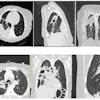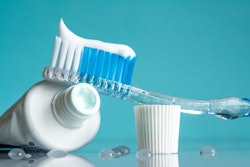University of Louisville researchers are a step closer to eliminating periodontal disease through their work to develop synthetic molecules that prevent bacteria responsible for the disease from spreading throughout the mouth.
The discovery could lead to the formulation of a mouth rinse, toothpaste, or tooth varnish to prevent the pathogen from establishing itself orally.
Donald Demuth, PhD, associate dean for research and enterprise at the School of Dentistry, received a patent on March 27 for his work to develop peptides that inhibit the interaction between P. gingivalis and Streptococcus gordonii and prevent P. gingivalis colonization of the mouth.
"When P. gingivalis enters the oral environment, it seeks out interaction with the bacterium S. gordonii -- an otherwise benign organism -- in order to lay the groundwork to propagate and ultimately gain a foothold below the gum line, leading to periodontal disease," he said in a press release.
Richard Lamont, director of the university's Oral Health and Systemic Disease Group, characterized this bacterial interaction and, based on those studies, Demuth's team developed a series of peptides that prevent P. gingivalis and S. gordonii from coming together, he explained.
They found that administering the peptide in an animal model prevented P. gingivalis-related bone loss and prevented the spread of the bacterium in the mouth.
"This is one of the first examples of a potential targeted therapeutic approach that may control periodontal disease," he said in a press release.



















